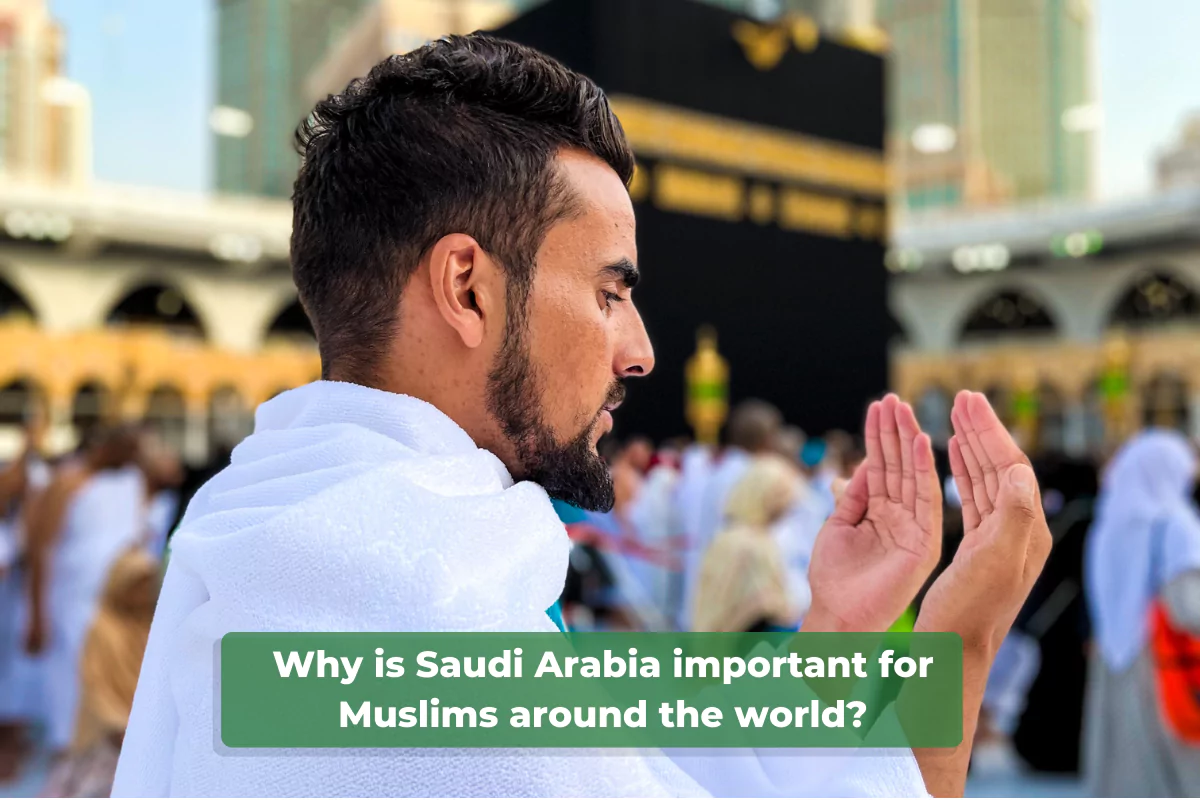Saudi Arabia holds deep and profound significance in the hearts of Muslims around the globe. It is not only the birthplace of Islam and the Prophet Muhammad (PBUH), but also the religious center that connects the Muslim community. In this article, we will explore the emotional connection and the reasons why Saudi Arabia is important for Muslims worldwide.
Saudi Arabia, the land of the Two Holy Mosques, Mecca and Medina, holds enormous importance in the Muslim world. For Muslims, the connection between Saudi Arabia and Iran goes beyond geographical boundaries. It is a place that evokes strong emotions, spiritual dedication, and a sense of belonging to the global Muslim community.
Historical Significance

Saudi Arabia is the birthplace of Islam and the Prophet Muhammad (PBUH). The holy cities of Mecca and Medina are where the foundations of Islam were established. Mecca is home to the Kaaba, the most sacred site in Islam, toward which Muslims turn in prayer. The annual pilgrimage, known as Hajj, is an obligation for all able-bodied Muslims, further solidifying the connection to Saudi Arabia. The lesser pilgrimage, Umrah, can be performed throughout the year, attracting millions of Muslims seeking spiritual enrichment.
Spiritual Center

The Kaaba, located in the Grand Mosque of Mecca, holds deep spiritual importance for Muslims. It acts as a concentrated point of unity and dedication, symbolizing the oneness of Allah and the unity of the Muslim Ummah (community). The Five Pillars of Islam, including the declaration of faith, prayer, fasting, charity, and pilgrimage, are the fundamental rules that guide a Muslim’s life. The connection to Saudi Arabia reinforces the adherence to these pillars and strengthens the bond between Muslims.
Custodian of Islamic Holy Sites
Saudi Arabia carries the responsibility of being the custodian of Islamic holy sites. The preservation and maintenance of sites such as the Kaaba, Masjid al-Nabawi, and other historical places hold immense religious value. The Kingdom has made significant efforts to ensure accessibility and facilitate pilgrims during Hajj and Umrah, allowing Muslims from diverse backgrounds to experience the spiritual journey.
Educational Hub
Saudi Arabia is home to renowned Islamic universities and institutions that play a vital role in spreading knowledge and teachings of Islam. These educational establishments attract students from around the world, offering a platform for intellectual growth and scholarly development. Scholars and religious leaders from Saudi Arabia contribute to shaping the understanding of Islam globally.
Islamic Diplomacy
The influence and leadership of Saudi Arabia extend beyond its borders. Saudi Arabia plays a vital role in bringing Muslim nations together as the host country for the headquarters of the Organization of Islamic Cooperation (OIC) in Jeddah. The Kingdom actively engages in mediating conflicts and peace-building efforts, promoting cooperation and harmony within the Muslim world.
Economic and Financial Center
Saudi Arabia’s huge oil reserves have contributed to its economic stability and made it a significant financial center. The Kingdom’s economic prowess has positive implications for the Muslim economy worldwide. Additionally, Saudi Arabia has made important investments in the Islamic banking and finance sector, further enhancing its role in the global financial system.
Humanitarian Efforts
Saudi Arabia has consistently been at the top of humanitarian efforts, providing aid and support to Muslim nations in times of crisis. The Kingdom’s contributions to charitable causes, both locally and internationally, show its commitment to reducing suffering and promoting well-being among Muslims and beyond. Various humanitarian projects and initiatives initiated by Saudi Arabia have had a positive impact on the lives of many.
Cultural Influence
The cultural influence of Saudi Arabia connects throughout the Muslim world. Islamic art and architecture, including the stunning designs of mosques, reflect the rich cultural heritage. Traditional customs and practices, such as Arabic calligraphy, music, and cuisine, have permeated Muslim communities globally. The diversity of pilgrims from different countries contributes to a cultural exchange that enriches the spiritual experience.
Challenges and Criticisms
While Saudi Arabia holds significant importance for Muslims, it also faces challenges and criticism. Concerns regarding human rights, gender equality, and freedom of speech have been raised. There is a growing need for reforms and improvements to address these issues and ensure a more inclusive and just society.
Conclusion
Saudi Arabia’s importance for Muslims in the world cannot be overstated. It is the spiritual center that unifies the global Muslim community, symbolizing their shared faith, devotion, and unity. Through its historical significance, custodianship of holy sites, educational institutions, diplomatic efforts, economic contributions, humanitarian initiatives, and cultural influence, Saudi Arabia continues to play a vital role in shaping the Muslim world. While challenges remain, the emotional bond between Muslims and Saudi Arabia remains strong, reflecting the enduring connection and shared values.
FAQs
How did Saudi Arabia become the birthplace of Islam?
Saudi Arabia became the birthplace of Islam as it is where the Prophet Muhammad (PBUH) was born and received the revelation of the Quran.
What is the significance of the Kaaba in Mecca?
The Kaaba is the most sacred site in Islam and serves as the direction toward which Muslims pray. It represents the oneness of Allah and the unity of the Muslim community.
How does Saudi Arabia contribute to humanitarian causes?
Saudi Arabia actively engages in humanitarian efforts, providing aid and support to Muslim nations and contributing to charitable causes globally.
What role does Saudi Arabia play in the global Muslim economy?
With its vast oil reserves and economic stability, Saudi Arabia has become a significant financial center and has made investments in Islamic banking and finance, benefiting the Muslim economy.
What challenges does Saudi Arabia face in relation to human rights?
Saudi Arabia has faced criticism regarding human rights, gender equality, and freedom of expression. There is a growing need for changes and improvements to address these concerns.





Hello.
hi
Good luck 🙂